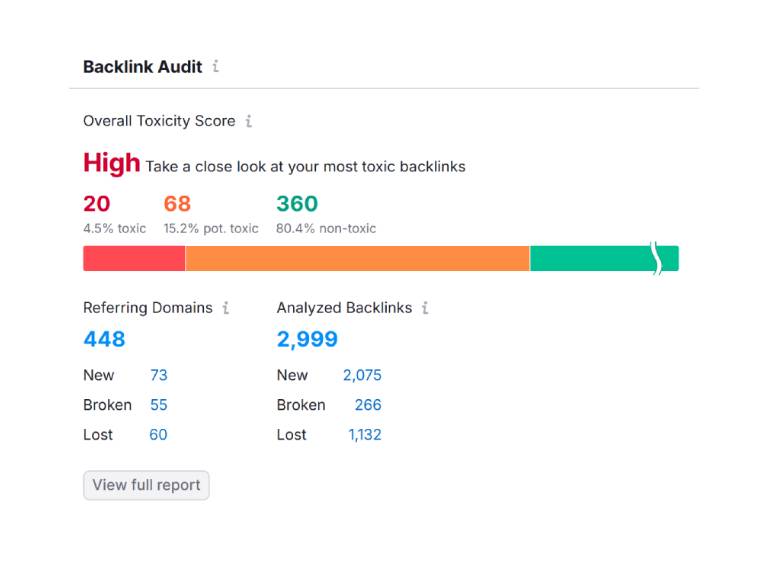Backlinks are one of the most critical elements of search engine optimization (SEO). Simply put, backlinks are links from one website to another. They signal to search engines like Google that your site is trustworthy, authoritative, and worth ranking higher in search results.
However, not all backlinks are created equal. Understanding their role and knowing how to build quality backlinks can make or break your SEO strategy.
Why Are Backlinks Important in SEO?
Search engines rely on backlinks to evaluate a website’s credibility and relevance. When a site links to your content, it vouches for quality. Websites with many relevant, high-quality backlinks tend to rank higher in search results.
Backlinks play a critical role by improving search engine rankings, driving referral traffic, and establishing credibility. Links from authoritative sites bring visitors directly to your website and enhance your reputation as an industry authority, strengthening your overall SEO profile.
Types of Backlinks
Not all backlinks are created equal, and search engines assign varying levels of value to different types. Dofollow links are the most valuable because they pass SEO value, or “link juice,” to your site.

These links from authoritative websites directly contribute to your rankings. Nofollow links, on the other hand, don’t pass direct SEO value but still offer indirect benefits such as driving traffic and improving brand visibility. Editorial backlinks, often regarded as the gold standard, come from high-authority sites that naturally link to your exceptional content.
Guest post backlinks are created when you contribute content to another site, including links to your pages, provided the host site is reputable. Toxic backlinks, which come from spammy or low-authority sites, can harm your SEO efforts, making it essential to monitor and disavow them.
How to Build Backlinks That Boost SEO
Building quality backlinks is fundamental to a successful off-page SEO strategy. Start by creating high-quality content that solves problems, answers questions, or provides unique insights, as this encourages other sites to link to it. Engaging in outreach is another effective method; contact website owners, bloggers, or influencers in your niche to pitch your content and explain its value to their audience.
Guest blogging for authoritative websites in your industry can also help you secure relevant backlinks. Analyzing competitors’ backlink profiles using tools like Ahrefs or SEMrush is a great way to identify opportunities to earn links from the same sources. Additionally, finding broken links on other websites and suggesting your content as a replacement benefits both you and the site owner.
Related: Your Guide to Technical SEO: Boost Your Website’s Search Engine Performance
What Makes a Backlink High-Quality?
Not every backlink will improve your SEO; certain factors set high-quality backlinks apart. Relevance is critical—links from websites within your niche or industry carry more weight than unrelated ones. Authority is another factor, as backlinks from well-established, high-traffic sites are far more impactful than those from smaller blogs.
Placement also matters, with contextual links embedded naturally within content being more valuable than links in footers or sidebars. Descriptive, keyword-rich anchor text enhances SEO, and dofollow links contribute more SEO value compared to nofollow links.
Common Mistakes in Backlink Strategies 
Certain backlink tactics can backfire and harm your SEO efforts. Buying backlinks is against Google’s guidelines and can lead to penalties. Overusing exact match anchor text repeatedly can trigger search engine penalties as well. Acquiring too many backlinks in a short period may appear suspicious to search engines, potentially leading to ranking penalties.
Ignoring toxic backlinks or failing to disavow them can negatively affect your rankings. Additionally, focusing on the sheer number of backlinks rather than their quality is a common pitfall that diminishes your efforts.
How to Monitor and Maintain a Healthy Backlink Profile
Maintaining a healthy backlink profile is essential for achieving long-term SEO success. Regularly use SEO tools like Ahrefs, Moz, or SEMrush to track your backlinks, analyze their quality, and identify potentially harmful links. Disavowing toxic backlinks with Google’s Disavow Tool ensures that spammy or irrelevant links do not negatively affect your rankings.
Periodically auditing your backlinks helps confirm they remain relevant and valuable to your site’s SEO performance.
Related: SEO Health Check: Ensuring Your Website’s Optimal Performance
Conclusion: Backlinks Matter for SEO Success
Backlinks remain one of the most critical factors for improving your site’s SEO and driving organic traffic. Success lies in earning high-authority, relevant links through ethical strategies rather than focusing solely on quantity. By implementing a well-planned backlink strategy, you can boost your rankings and establish your website as a trusted source of information.
If you’re ready to take your backlink strategy to the next level, LuccaAM can help. Start building a stronger backlink profile today, and watch your search rankings soar!
FAQs
What Are Backlinks in Simple Terms?
Backlinks are links from one website to another. They act as “votes” of confidence, signaling to search engines that your content is credible and valuable.
How Can I Get High-Quality Backlinks?
Focus on creating valuable content, engaging in outreach, guest blogging, fixing broken links, and analyzing competitors’ backlink profiles to identify opportunities.
Are NoFollow Links Useful for SEO?
Yes, while they don’t pass direct SEO value, nofollow links can drive referral traffic, improve visibility, and contribute to your overall backlink strategy.
What Are Toxic Backlinks?
Toxic backlinks are links from spammy or irrelevant websites. They can harm your rankings, so it’s crucial to monitor and disavow them as needed.
- Growing Your Rockford IL Business with Modern Website Design - April 15, 2025
- Content Pruning: The Key to Better SEO and Higher Rankings - March 25, 2025
- Internal Linking SEO: How to Boost Your Rankings and User Experience - February 18, 2025
